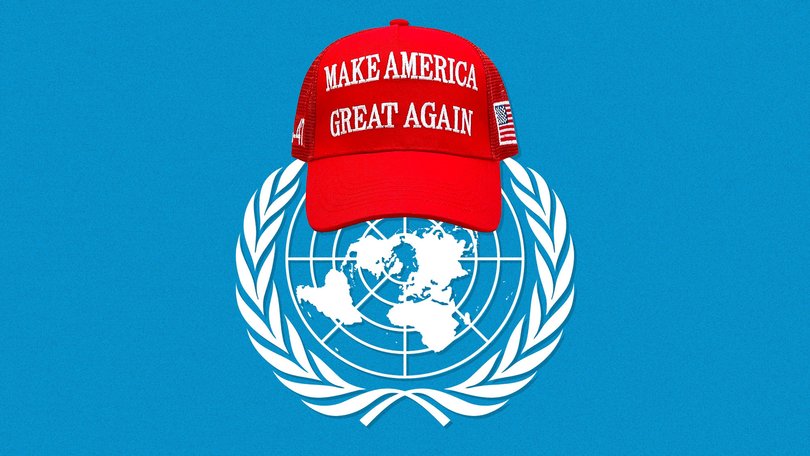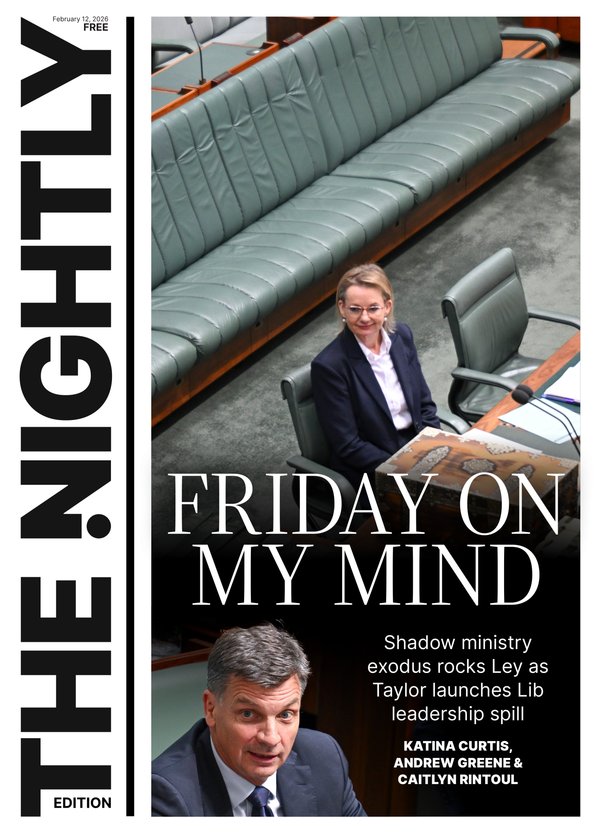EDITORIAL: Without the US, United Nations has little relevance
EDITORIAL: On some of his gripes with the UN, Donald Trump may have a point.

It’s the question policy wonks from New York to Geneva and Canberra have been wringing their hands over: at 80 years old, what relevance does the United Nations have within an increasingly polarised world order?
US President Donald Trump asked it outright in his blistering critique of the organisation given during a speech at its General Assembly in New York.
“What is the purpose of the United Nations?” he asked.
Sign up to The Nightly's newsletters.
Get the first look at the digital newspaper, curated daily stories and breaking headlines delivered to your inbox.
By continuing you agree to our Terms and Privacy Policy.“It has such tremendous, tremendous potential, but it’s not even coming close to living up to that potential.
“All they seem to do is write a really strongly worded letter and then never follow that letter up. It’s empty words and empty words don’t solve war.”
With open hostility, Mr Trump has given up on the UN, with its faulty escalators and temperamental teleprompters.
He left the position of US ambassador to the UN vacant for eight months before the Senate eventually confirmed his former national security adviser Mike Waltz to the role last week.
American funding to many of its programs has been slashed by billions and the US has withdrawn entirely from a number of agencies and walked away from the Paris Agreement on climate.
On some of his gripes with the UN, Mr Trump may have a point. This week in New York, world leaders have lined up to present their visions of a co-operative world.
Yet brutal wars in Ukraine and the Middle East grind on. The climate crisis continues. Hundreds of millions of children exist in extreme poverty. The UN, in its eight decades of existence, has proven impotent against many catastrophes.
Anthony Albanese still has faith in the UN’s grand promise, using his first speech at the General Assembly to plead with the sceptics to stay the course in times of global uncertainty.
“If the United Nations steps back, we all lose ground,” the Prime Minister said.
“If we give people reason to doubt the value of co-operation, then the risk of conflict becoming the default option grows.
“If we allow any nation to imagine itself outside the rules, or above them, then the sovereignty of every nation is eroded.
“If we resign ourselves to the idea that war is inevitable, or relegate ourselves to the status of disinterested bystanders, we risk a world where dialogue and diplomacy are viewed as a dead end, rather than the vital road to understanding.”
Lofty ambitions, certainly.
Ironically, it is China, so often on the receiving end of the rest of the world’s castigation, which is now rhetorically positioning itself as a champion of multi-lateralism as it tries to step into the influence vacuum created by the US’s absence.
Meanwhile, other leaders are trying to pretend that the US’s estrangement from the UN is of little consequence. They share Australia’s attitude that Mr Trump’s presidency is something to be endured, and things will revert to “normal” after November 2028.
That is a dangerous delusion in a world in which polarisation and instability have become the status quo.
